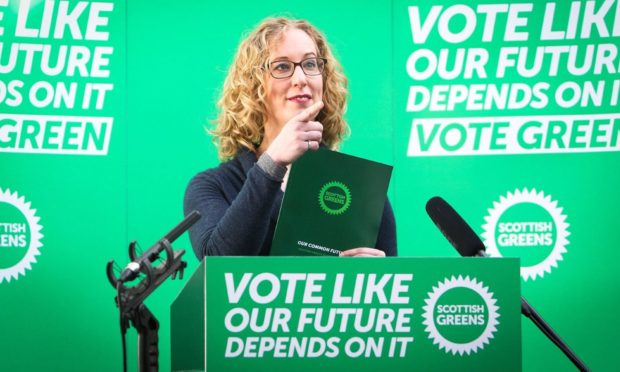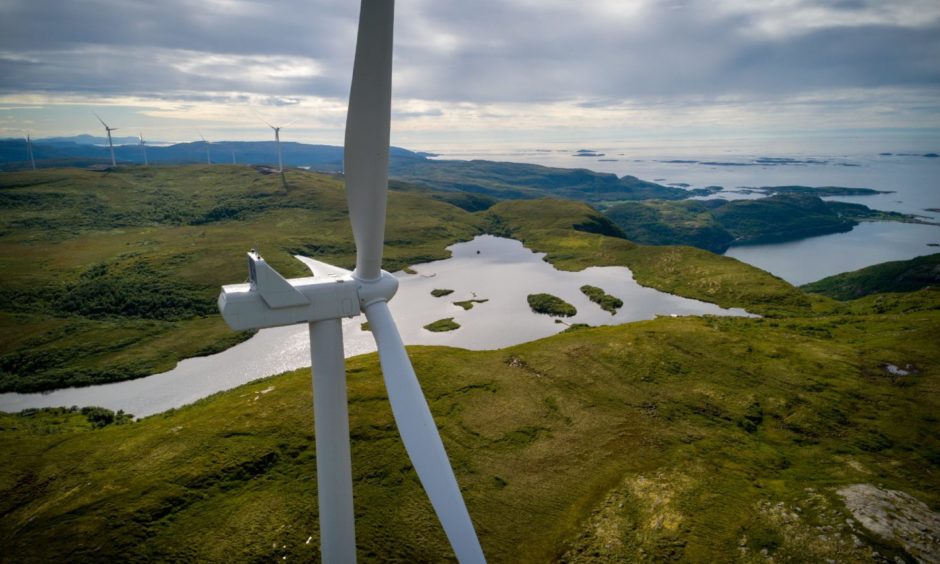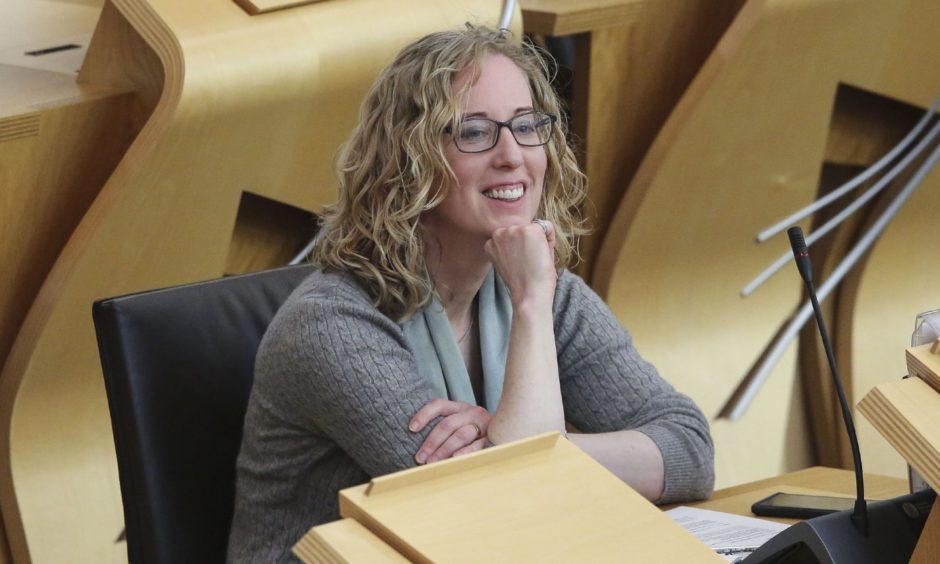Scottish Greens co-leader Lorna Slater claims it is “risky and dangerous” to leave oil and gas workers dependent on an industry that “must be phased out”.
In our exclusive interview, the newly-elected MSP refused to be drawn on when she believes the industry should be wound down.
However, she said her party want to “start cutting back the subsidies” and redirecting the money into renewable energy.
The remarks come just days after First Minister Nicola Sturgeon announced talks are under way on a potential deal which could see Green politicians take ministerial posts in the SNP-run government.
The plan has been criticised by Conservative MSPs across the North East region who claim the deal will “throw oil and gas jobs to the wolves”.
But Ms Slater, who is currently working through her notice period as an electro-mechanical engineer in the renewable sector, believes the opposite is true.
‘Oil and gas is certainly short-term’
The Green MSP remained tight-lipped on statements she made in an online interview last year in which she suggsted a two to five-year timescale for winding down oil and gas.
But she said “discussions” would need to take place about a date for phasing fossil fuels out.
She added: “We have legal obligations to move to the Paris Agreement and that means North Sea oil and gas must be phased out.
“We really can’t equivocate about that. But what we must make sure is that nobody’s livelihoods are effected, no communities are abandoned.
“We all saw how Thatcher’s closing of the coal mines abandoned whole communities and left people destitute. We have the option not to do that.
“The oil and gas industry is in decline, it has been declining, we’ve seen massive lay-offs.
“The important thing is not to abandon people and communities, we want to build something sustainable.
“We need to build industries that will take us into the next century. We need to think long-term. Oil and gas is certainly short-term.”
‘Risky and dangerous’
The party’s co-leader says there is “absolutely no reason” why the transition away from fossil fuels should cause economic damage since Scotland is home to 25% of all the offshore renewable resources in Europe.
However, she believes it comes down to a “question of priorities” for governments on how they choose to act going forward.
Ms Slater adds: “I think it’s risky and dangerous to leave workers and the supply chains dependent on a declining industry.
“Let’s be realistic, we know this is going to decline. Let’s not abandon people and communities to the mercy of the oil and gas corporations.
“That’s the danger if you leave this in their hands. Into government’s hands we can make sensible plans and really support people and communities properly.
“Realistically to tackle the climate crisis, it has to be as quickly as possible.
“When we talk about dates, we have to work together to work out what as fast as possible looks like but for the moment let’s agree the intention.”
Oil and gas is ‘wildly subsidised’
The MSP, who moved from Canada to work in Scotland’s renewable industry, says oil and gas is one of the “most subsidised industries in the world”.
While it has in the past been a “big, growing industry”, Ms Slater claims this was a result of “deliberate government investment” and argues the same can now be achieved for the renewables sector.
Ms Slater adds: “The oil industry went from nothing to quite a big thing over the course of about 15 years.
“There’s no reason at all why with good investment and sound planning that we can’t build and create an equivalently large industry in renewable energy.
“I think it’s a really exciting thing to be building something for the future.
“We want to start cutting back the subsidies, cutting back the tax breaks for oil and gas and redirect that money into building all these new industries and supporting that.
“With the first round of renewables, the government kind of just gave away our resources to global corporations and didn’t tie them down to contributing to our economy in the way that they could have done.
“If I’m involved, we will do this differently. Much more significant percentages of their profits have to come back to local communities.
“Oil and gas is wildly subsidised so the market is not level so as long as we’re subsidising oil and gas and making it cheaper to use gas then it is to electricity or other means.
“As long as the government has their thumb on the balance of the market, of course there’s going to be demand for oil and gas because it’s cheaper and it’s subsidised.”


